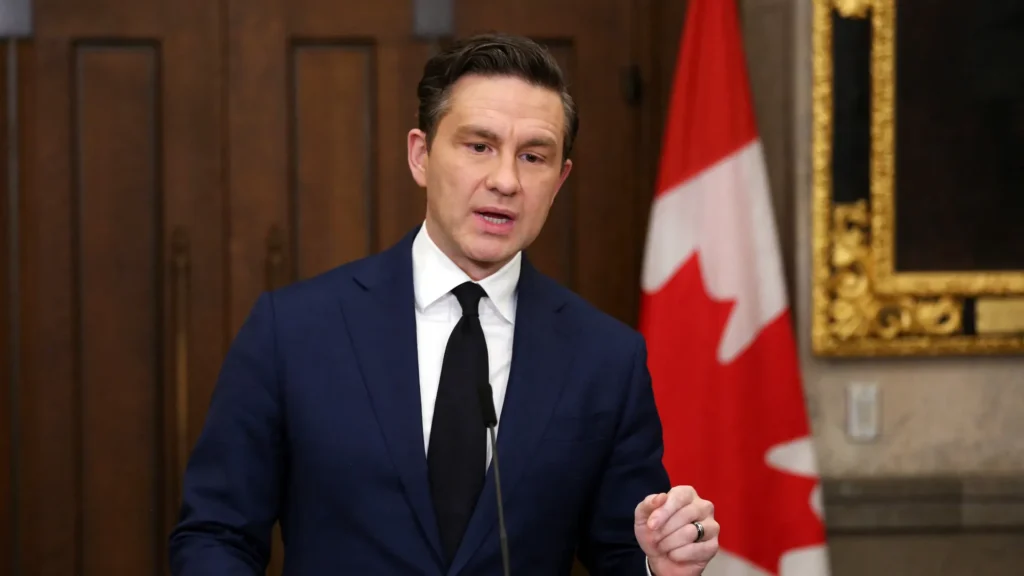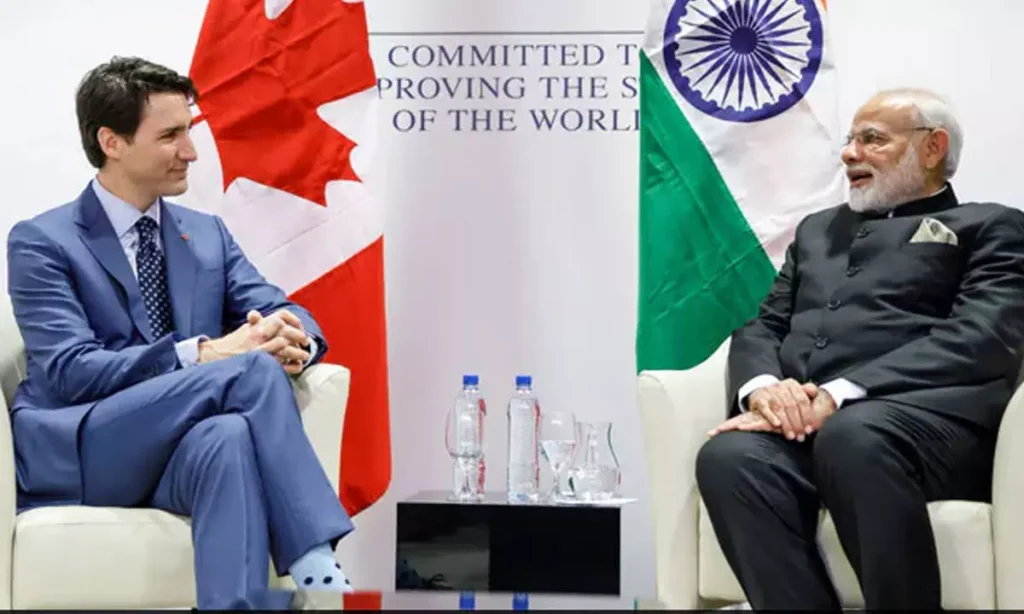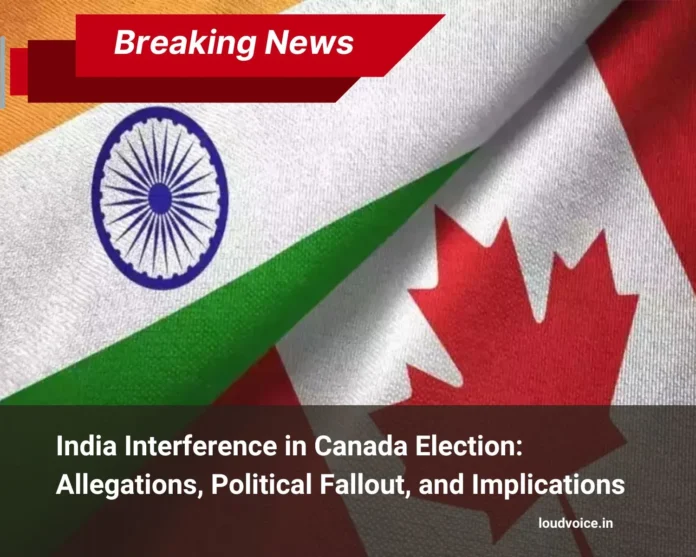Introduction
Allegations of India interference in Canada election have stirred significant controversy, with reports claiming that Indian agents attempted to influence the 2022 Conservative Party leadership race. According to The Globe and Mail, Canadian intelligence sources alleged that Indian operatives were involved in organizing and fundraising efforts within Canada’s South Asian community to boost Pierre Poilievre’s candidacy.
While no direct evidence links Poilievre or his team to the alleged meddling, the accusations have heightened concerns over foreign influence in the country’s political landscape as the 28 April election approaches.
Background: The Allegations of Indian Interference
- Reports of Election Meddling: According to The Globe and Mail, Indian agents allegedly sought to influence the Conservative Party’s leadership race in 2022. The report claims that:
- Fundraising and Organizing Efforts: Indian operatives were reportedly involved in organizing events and raising funds within Canada’s South Asian community to strengthen Poilievre’s support base.
- Lack of Evidence Linking Poilievre: Although Canadian intelligence sources flagged the activities, no evidence suggests that Poilievre or his campaign team was aware of or involved in the interference.
- Broader Interference Strategy: The report suggests that India’s alleged actions were part of a larger campaign aimed at influencing Canadian politicians across all major parties.
- Denials and Defenses: Both India and Pierre Poilievre have rejected the allegations:
- India’s Official Response: The Indian government has consistently denied accusations of election interference in Canada, dismissing the claims as baseless.
- Poilievre’s Defense: The Conservative leader refuted any claims of external influence in his leadership victory, stating that he had won the race “fair and square” with 68% of the vote.
Political Fallout and Reactions

- Pierre Poilievre’s Refusal of Security Clearance: Poilievre, the only federal party leader running for prime minister without security clearance, defended his stance by arguing that:
- Politicized Process: He claimed that obtaining clearance would prevent him from speaking publicly on sensitive national issues.
- Transparency Concerns: Poilievre accused the ruling Liberals of trying to silence him by restricting access to intelligence reports, stating, “What I will not do is commit to the oath of secrecy the Liberals want to impose on me.”
- Mark Carney and Liberal Party Scrutiny: Prime Minister Mark Carney also faced scrutiny over the issue, as the Liberal Party was accused of ousting a candidate allegedly linked to India.
- MP Chandra Arya’s Denial: Arya, whose leadership bid was revoked, dismissed the allegations, attributing his exclusion to his advocacy for Hindu Canadian issues and his opposition to Khalistani extremism.
- Liberal Party’s Vetting Process: Carney defended his party’s decision, stating that candidates undergo a “robust and serious process” and that some individuals fail to receive the “green light” due to foreign interference concerns.
Broader Context: Rising Concerns Over Foreign Interference
- Previous Allegations Against India: India has faced previous accusations of meddling in Canadian elections. According to Canadian intelligence reports:
- Consistent Denials: Despite repeated claims of interference, India has consistently denied any involvement.
- Minimal Influence on Election Outcomes: A public inquiry concluded that while attempts at interference were “troubling,” they had minimal impact on past Canadian elections.
- Growing Threats from Other Nations: The interference allegations against India are part of a larger trend of foreign meddling in Canada’s political landscape:
- China and Russia’s Influence: The election integrity task force recently warned that agents from China, Russia, and India may attempt to influence the upcoming election.
- AI and Disinformation Tactics: Officials cautioned that foreign actors might use artificial intelligence, proxies, and online disinformation to target diaspora communities and sway public opinion.
Implications for Canada’s Democracy

- Erosion of Public Trust: The allegations of foreign interference could undermine public confidence in Canada’s electoral integrity:
- Voter Distrust: Repeated accusations of meddling may erode trust in political leaders and institutions.
- Disinformation Risks: The spread of AI-generated propaganda could further destabilize the electoral process.
- Heightened Government Response: In response to the growing concerns:
- Increased Security Measures: Canadian officials have signaled that the federal government will adopt a more proactive stance in combating disinformation.
- Public Awareness Campaigns: Authorities are expected to launch initiatives aimed at educating voters about foreign influence tactics.
Conclusion
The accusations of Indian interference in Canada’s 2022 Conservative Party leadership race have added fuel to the ongoing debate over foreign meddling in the country’s politics. While no direct evidence links Pierre Poilievre or his campaign to the alleged activities, the claims have sparked widespread concern.
As the 28 April election nears, both the Conservative and Liberal parties face mounting pressure to address the issue transparently. Regardless of the veracity of the allegations, the incident highlights the growing challenges democratic nations face in safeguarding electoral integrity against foreign influence.


